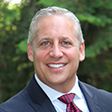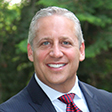How to Choose the Best Financial Adviser For You
Here are five questions to ask. And don't forget to check what your gut is telling you, too.

Profit and prosper with the best of Kiplinger's advice on investing, taxes, retirement, personal finance and much more. Delivered daily. Enter your email in the box and click Sign Me Up.
You are now subscribed
Your newsletter sign-up was successful
Want to add more newsletters?

Delivered daily
Kiplinger Today
Profit and prosper with the best of Kiplinger's advice on investing, taxes, retirement, personal finance and much more delivered daily. Smart money moves start here.

Sent five days a week
Kiplinger A Step Ahead
Get practical help to make better financial decisions in your everyday life, from spending to savings on top deals.

Delivered daily
Kiplinger Closing Bell
Get today's biggest financial and investing headlines delivered to your inbox every day the U.S. stock market is open.

Sent twice a week
Kiplinger Adviser Intel
Financial pros across the country share best practices and fresh tactics to preserve and grow your wealth.

Delivered weekly
Kiplinger Tax Tips
Trim your federal and state tax bills with practical tax-planning and tax-cutting strategies.

Sent twice a week
Kiplinger Retirement Tips
Your twice-a-week guide to planning and enjoying a financially secure and richly rewarding retirement

Sent bimonthly.
Kiplinger Adviser Angle
Insights for advisers, wealth managers and other financial professionals.

Sent twice a week
Kiplinger Investing Weekly
Your twice-a-week roundup of promising stocks, funds, companies and industries you should consider, ones you should avoid, and why.

Sent weekly for six weeks
Kiplinger Invest for Retirement
Your step-by-step six-part series on how to invest for retirement, from devising a successful strategy to exactly which investments to choose.
Like anyone in business, I’d like to think that I’d be at the top of everyone’s list of potential wealth advisers. But the reality isn’t that simple. Working with an adviser is a two-way street, and the most successful relationship is one in which your needs and preferences are compatible.
If you’re looking for a new adviser or reviewing your existing relationship, it can be hard to know where to start. To help you get a handle on what you’re looking for, consider these five questions. They’ll give you a framework to evaluate each adviser you come across and help you make the decision that’s best for you.
1. What's the adviser’s reputation?
For any adviser—present or potential—your first priority should be to check his or her background. These days, it’s extremely easy to do: Just use the Financial Industry Regulatory Authority’s BrokerCheck tool, and type in the person’s name. It’ll give you information about any regulatory actions or official customer complaints. It’s actually surprising how many advisers have a mark on their record, which is something you should know about.
From just $107.88 $24.99 for Kiplinger Personal Finance
Become a smarter, better informed investor. Subscribe from just $107.88 $24.99, plus get up to 4 Special Issues

Sign up for Kiplinger’s Free Newsletters
Profit and prosper with the best of expert advice on investing, taxes, retirement, personal finance and more - straight to your e-mail.
Profit and prosper with the best of expert advice - straight to your e-mail.
You can also supplement your search with some sleuthing on Google. Either way, be sure to take a bit of time to do some homework as part of your due diligence process—background research is always worth it.
2. How much service and contact do you need?
These may be the most important questions you ask yourself, so be sure to really think about it. Do you just want a little bit of help implementing a financial plan that you can run yourself? Or do you want to be able to check in and meet regularly with your adviser to discuss your plans and progress?
Service level is a major distinction among advisers. Some run full-service practices that are very hands-on, and some have larger volumes of clients who they don’t speak to very often. One way of doing things isn’t necessarily better than the other. Finding the right fit depends on the complexity of your financial situation, the type and amount of advice you’re looking for and your preferences when it comes to meetings, phone calls and touching base.
Of course, there’s often a trade-off between fees and service. If you’re looking for the lowest-cost advice possible, you should be aware that the quality of service is also likely to be lower. The opposite may also be true. If you’re looking for an adviser who will always be happy to chat, or who will help quarterback tax season with your accountant, you’ll likely find that he or she will charge more than a discount broker. (But please note that those fees should never be outlandish!)
3. How independent is the adviser?
Some advisers work for the big wirehouses, where they offer in-house investment options and management. Others are independent, meaning that they aren’t directly affiliated with or employed by a large bank.
If you have all your banking, assets, loans and credit cards with one bank, you’re a happy customer, and you like the name recognition of working with a large firm, it might make sense to stick with them for investment advice. Wirehouses have an enormous amount of infrastructure and can typically offer the best of what they have to most of their customers.
Unfortunately, the best of what a single bank has might not be the best in class. After all, it’s pretty much impossible to be the best at everything. That means the advice you get could be biased towards internal investments or products, even if they aren’t the best ones available. Also, the large banks are focusing more and more on ultra-wealthy customers, a strategy that might come at the expense of smaller investors.
On the other hand, independent advisers can access a lot of the products offered by the banks, but they aren’t beholden to any one of them. So, they usually have much more flexibility in what they can offer you—with possibly lower fees.
I’m an independent adviser for many reasons, and I believe my independence offers tangible benefits to my clients. But the right choice ultimately depends on you.
4. What credentials or experience are important to you?
When it comes to your finances, you might feel more confident with someone who has been providing advice for decades. Then again, you might find that you have a better rapport with someone younger or newer to the field. Sometimes it can be hard to know what you prefer until you start talking to potential advisers—you might surprise yourself!
I would advise this, though: if you’re looking to work with someone with fewer years in the industry, take a look at their qualifications, mentorship figures and the infrastructure around them. The financial world is complicated and getting more so every day, so you want to be sure that the person you’re working with understands the subjects that will affect you and your life.
Of course, that same thought process should apply to those who do have years of experience also—if you need some help with an issue that your adviser has no experience with, no number of decades in the industry will make up for it. I certainly would not want to be the “guinea pig” client!
5. How much does proximity matter?
Finally, consider your potential adviser's location and how you'd like to communicate with him or her. For some people, an adviser is someone you can easily talk to over the phone and by email. With advancements in technology and communications—whether it’s Skype, Facetime or some other means—you can now see your adviser face-to-face without ever leaving the house. For others, however, it’s critical to be able to visit their adviser in person to discuss important financial issues.
In my case, I work with clients all over the country. Some are local; some are far away. Some, I see regularly; and some, I’ve never met face-to-face. All of these relationships work because they’re structured in a way that fits the needs of the client.
If you want to work with someone in town, it obviously will narrow the field considerably. Alternatively, if proximity isn’t that important to you, you can focus on finding an adviser who best fits your needs on another level, such as expertise or service level. This could give you a much broader selection of potential advisers.
Follow Your Gut Instinct
At the end of the day, after you’ve answered the five questions above, check in with your gut instinct. If you feel comfortable with your adviser and feel that he or she is listening, understands your needs and is fully invested in you, you could be on the right track to a great relationship.
On the other hand, if your gut is telling you “no” even if the adviser meets all of your other criteria, it’s important to step back and consider why. If you’re not comfortable, you simply won’t have a great relationship.
You might be surprised that I’m talking about gut instinct instead of investment performance. Don’t get me wrong; we all like good performance, but a financial adviser is much more than a stock picker. This is a person who typically knows the most intimate details of your financial life and will play an important role in guiding your family through both good times and bad. That’s a service that goes way beyond asset allocation.
The right fit is out there, and with the answers to these five questions in mind, you’ll be well on your way to finding it.
Bradford Pine is a wealth adviser and president of the Garden City, NY-based Bradford Pine Wealth Group. He assists individuals to create wealth, simplify their lives and plan for retirement.
Profit and prosper with the best of Kiplinger's advice on investing, taxes, retirement, personal finance and much more. Delivered daily. Enter your email in the box and click Sign Me Up.

Brad Pine is a wealth adviser and president of Bradford Pine Wealth Group, based in Garden City, N.Y. BP Wealth Group assists individuals and entrepreneurs to create wealth, simplify their lives and plan for retirement. Honesty, integrity and reliability are the foundations of Pine's investment philosophy.